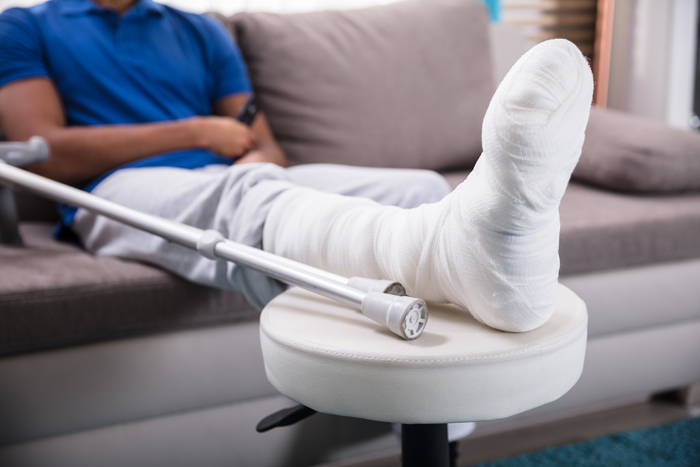Trauma and Fracture Surgery Treatment & Diagnostics in Chunni Ganj, Kanpur
Trauma and Fracture Surgery
Introduction
Fractures can happen to anyone. Getting a fracture from trauma is more common than you think. Simple things such as continuous running can also impact your bone in such a way that one can get minor fractures. Major fractures are mostly acquired through injuries. Keep reading this article to know more about fractures and their surgery.
What is Meant by a Trauma and Fracture Surgery?
Orthopedic trauma is a specialized branch of orthopedic surgery. They deal with the issues of bones, joints, and soft tissues (cartilages, ligaments, and muscles) of the whole body that appear following a trauma. The fracture surgeries related to trauma are collectively known as trauma and fracture surgery.

When is a Trauma and Fracture Surgery Required?
A fracture might be major or minor. Depending on the severity of a fracture, surgery might or might not be required. A minor fracture might be cured with a plaster or a splint. In case of severe fractures, surgery is necessary. Some of the severe fractures are as follows:
- Femur fracture
- Shoulder fracture
- Hip fracture
- Knee fracture
If you acquire a fracture in any of these areas, contact a healthcare professional immediately.
Request an appointment at Apollo Spectra Hospitals, Kanpur
Call 1860-500-2244 to book an appointment
The Procedure that is Followed by a Trauma and Fracture Surgeon
The procedure followed by a trauma and fracture surgeon at Apollo Spectra, Kanpur is as follows:
- General or local anesthesia is done depending on the area of the fracture.
- The vitals of the patient is checked.
- Incisions are made on the skin with the help of surgical tools.
- The necessary repairs are made on the bone.
- If required, damaged bone and joints and replaced with prosthetic ones.
- The wound is stitched up and repaired and dressed.
The Risks, Complications, and Side Effects Involved with a Trauma and Fracture Surgery
There can be several risks, complications, and side effects related to trauma and fracture surgery. Some of them are as follows:
- Osteomyelitis (a kind of bone infection)
- Delayed union, that is, the fractured bones will take time to rejoin.
- Nonunion, that is, sometimes there is a chance that the fracture bones might not heal at all.
- Malunion, that is, the fractured bones will heal but the joint will be weak.
- Premature epiphyseal closure can lead to limb discrepancies
- Fracture-associated sarcoma is a tumor of the bone that might appear after surgery.
- Wound infection
- Blisters from the fracture
- Your surrounding tissues, skins, and nerves might get damaged.
- Haemarthrosis
- Vascular injury
Conclusion
Fractures can be so severe that they can lead to life-threatening situations. If you get a fracture through any injuries or anything, it is best not to ignore it. Contact a healthcare professional in Kanpur immediately and get treatment.
Orthopedic trauma is a specialized branch of orthopedic surgery. They deal with the issues of bones, joints, and soft tissues (cartilages, ligaments, and muscles) of the whole body that appear following a trauma.
Many types of fractures require surgery. One is a closed fracture, where the skin remains unharmed but the bone beneath is broken/ fractured, requires surgery. In comminuted fracture, the bone gets broken into pieces. This requires surgery too. Other kinds of fractures require surgery too unless it is a minor tiny crack on the bone.
If you get a fracture on any bone of any part of the body, there will be a rapid swelling in that area. Do not get surgery if the swelling still remains. This will give rise to complications. Once the swelling decreases, it is safe to have surgery.
Even though bones are strong, they can break. If they come in contact with a stronger force, then they have a chance of getting fractured. Also, if you are involved with constant forces like running, sometimes a huge impact cause fracture to your bones. This is known as a stress fracture.
Our Top Specialities
NOTICE BOARD
CONTACT US
CONTACT US
 Book Appointment
Book Appointment


.svg)
.svg)
.svg)
.svg)








